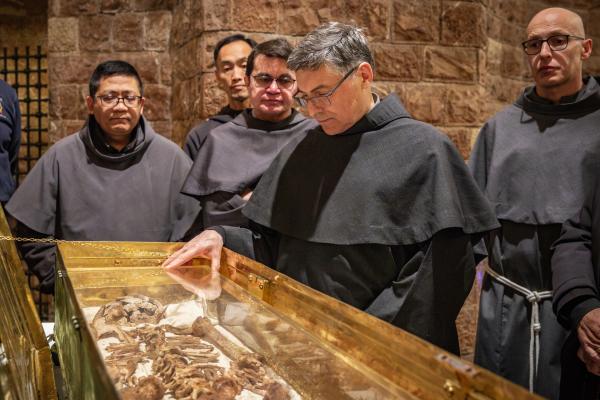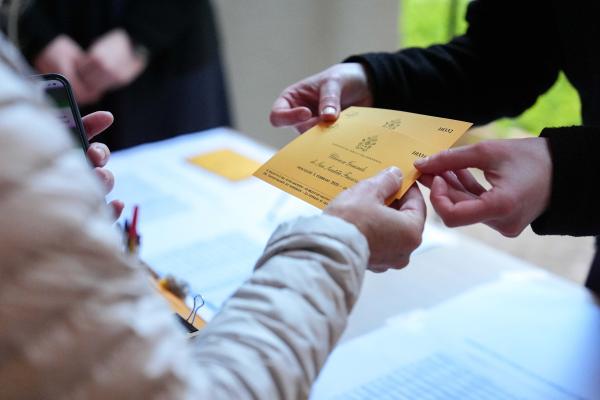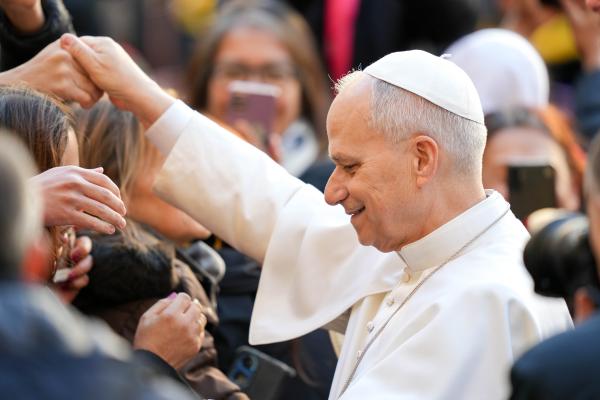AI must serve human potential, not compete against it, pope says
Presenting Pope Francis' message for World Peace Day 2024, which will be celebrated Jan. 1, Cardinal Michael Czerny told reporters, "Like any other product of human ingenuity, artificial intelligence is acceptable if it serves the common the good, protects the inalienable value of the human person and promotes fundamental rights."
 Carol Glatz
Carol Glatz
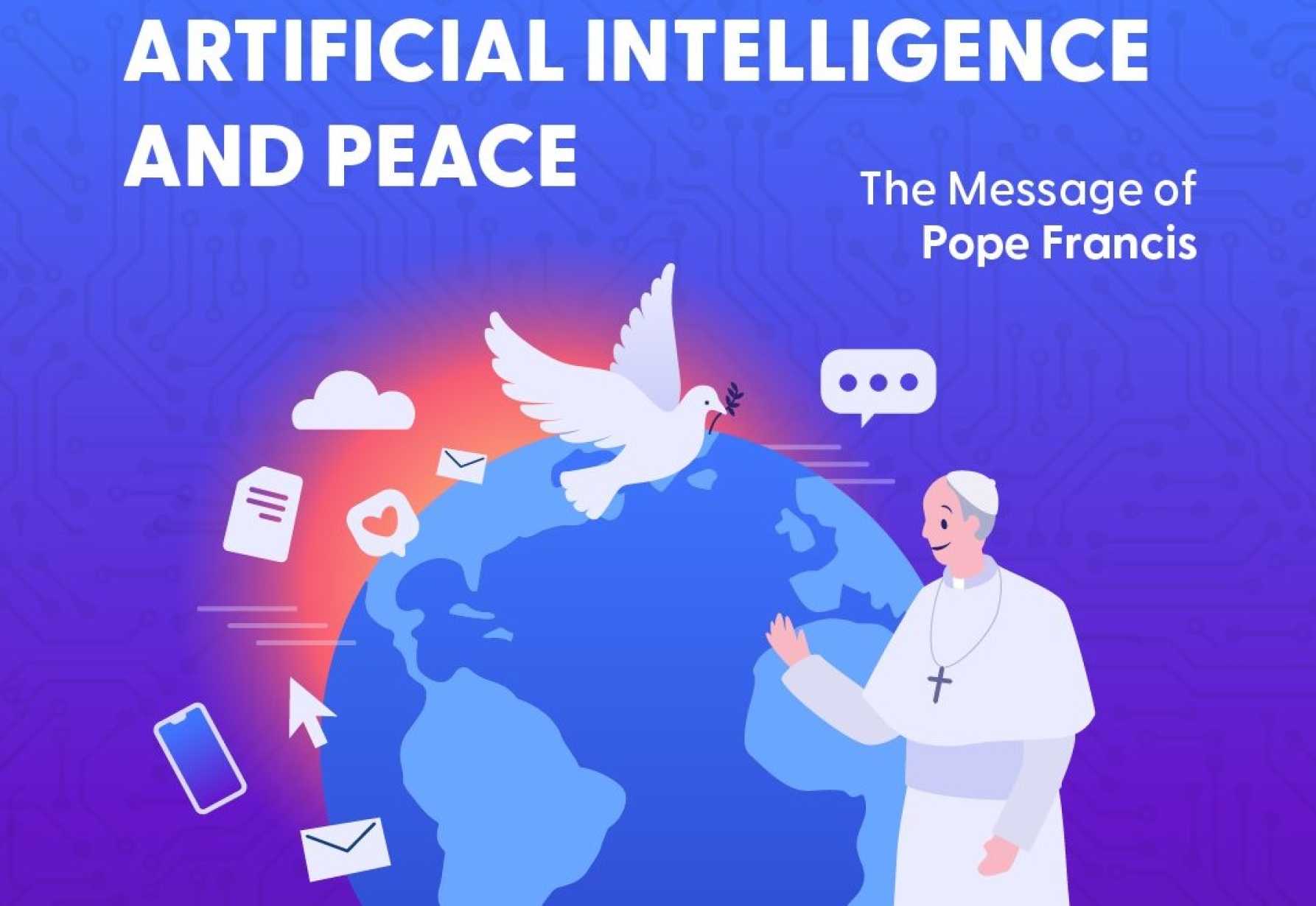
The Dicastery for Promoting Integral Human Development published this graphic Dec. 14, 2023, marking the release of Pope Francis' message for World Peace Day Jan. 1, 2024. (CNS photo/Dicastery for Promoting Integral Human Development)
VATICAN CITY (CNS) -- All forms of artificial intelligence should be used to alleviate human suffering, promote integral development and help end wars and conflicts, not increase inequality and injustice in the world, Pope Francis said in his message for World Peace Day 2024.
"Artificial intelligence ought to serve our best human potential and our highest aspirations, not compete with them," the pope said in his message for the Jan. 1 commemoration.
The message, "Artificial Intelligence and Peace," was addressed to all men and women in the world, and in particular to heads of state and government and the leaders of the different religions and civil society. It was released Dec. 14 at a Vatican news conference.
The pope's message highlighted the "need to strengthen or, if necessary, to establish bodies charged with examining the ethical issues arising in this field and protecting the rights of those who employ forms of artificial intelligence or are affected by them."
The impact of any form of artificial intelligence "depends not only on its technical design, but also on the aims and interests of its owners and developers, and on the situations in which it will be employed," he said.
Positive outcomes "will only be achieved if we show ourselves capable of acting responsibly and respect such fundamental human values as 'inclusion, transparency, security, equity, privacy and reliability,'" the pope added.
The huge advances in new information technologies, he said, "offer exciting opportunities and grave risks, with serious implications for the pursuit of justice and harmony among peoples."
Many urgent questions need to be asked, he added, including, "What will be the consequences, in the medium and long term, of these new digital technologies? And what impact will they have on individual lives and on societies, on international stability and peace?"
Pope Francis said, "We need to be aware of the rapid transformations now taking place and to manage them in ways that safeguard fundamental human rights and respect the institutions and laws that promote integral human development."
Cardinal Michael Czerny, prefect of the Dicastery for Promoting Integral Human Development, told reporters at the Vatican Dec. 14 that "like any other product of human ingenuity, artificial intelligence is acceptable if it serves the common the good, protects the inalienable value of the human person and promotes fundamental rights."
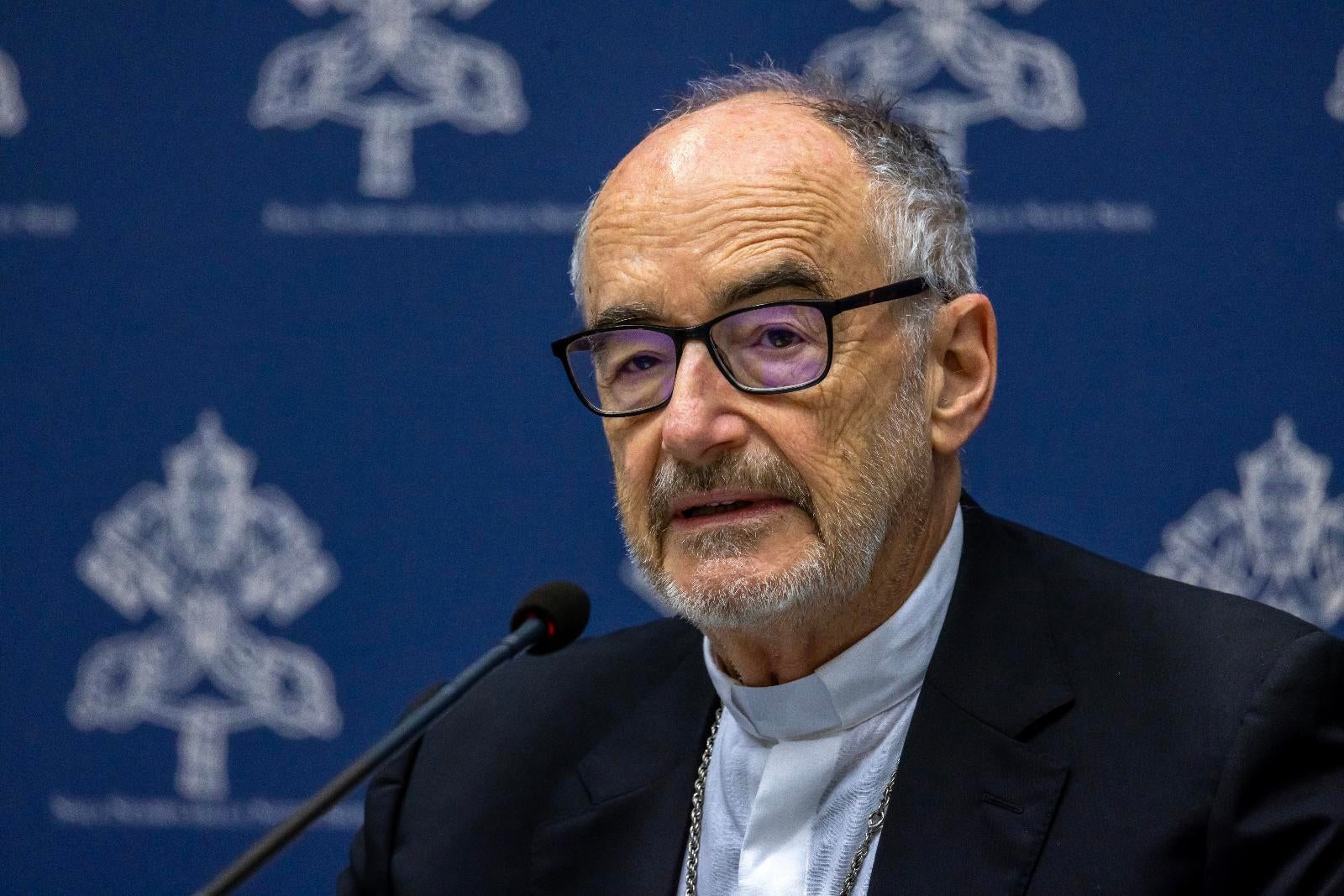
"Artificial intelligences already exert huge influence and will increasingly do so," the cardinal said, "but we do not know where AI will take us in politics and commerce, culture and the environment and so on, so everyone needs to be better informed about developments as they occur, to speak up and take responsibility."
In his message, the pope pinpointed specific technologies and advancements in the world of artificial intelligence that require urgent attention and oversight such as: machine or deep learning; surveillance systems; social credit or ranking systems; and lethal autonomous weapons systems or LAWs.
The weaponization of artificial intelligence through LAWs, he said, "is a cause for grave ethical concern. Autonomous weapon systems can never be morally responsible subjects," and so "it is imperative to ensure adequate, meaningful and consistent human oversight of weapon systems."
Nations are responsible for regulating AI at home and "international organizations can play a decisive role in reaching multilateral agreements and coordinating their application and enforcement," Pope Francis said, calling on the global community of nations to work together to adopt "a binding international treaty that regulates the development and use of artificial intelligence in its many forms."
Regulation should aim not only at preventing harmful practices but also at encouraging best practices, he added.
Fundamentally, he said, in a world of seemingly limitless technological possibilities, people risk falling prey to a "technocratic system," which "allies the economy with technology and privileges the criterion of efficiency, tending to ignore anything unrelated to its immediate interests."
"In an obsessive desire to control everything, we risk losing control over ourselves," he said. "In the quest for an absolute freedom, we risk falling into the spiral of a 'technological dictatorship.'"
"Inspired by a Promethean presumption of self-sufficiency, inequalities could grow out of proportion, knowledge and wealth accumulate in the hands of a few, and grave risks ensue for democratic societies and peaceful coexistence," he said.
Barbara Caputo, a professor of computer engineering and artificial intelligence at the Turin Polytechnical University, told reporters at the Vatican news conference that while AI isn't new, what is different today is the amount of information collected on individuals and "the concentration of resources" in so few hands.
The concentration of data, human talent, economic resources and computer capabilities in the hands of fewer entities means that profit will be their only or overriding motive, she said. "The pope reminds us with his message that artificial intelligence is made by people for people, and it must go back to being for everyone so it can really be an instrument for peace."
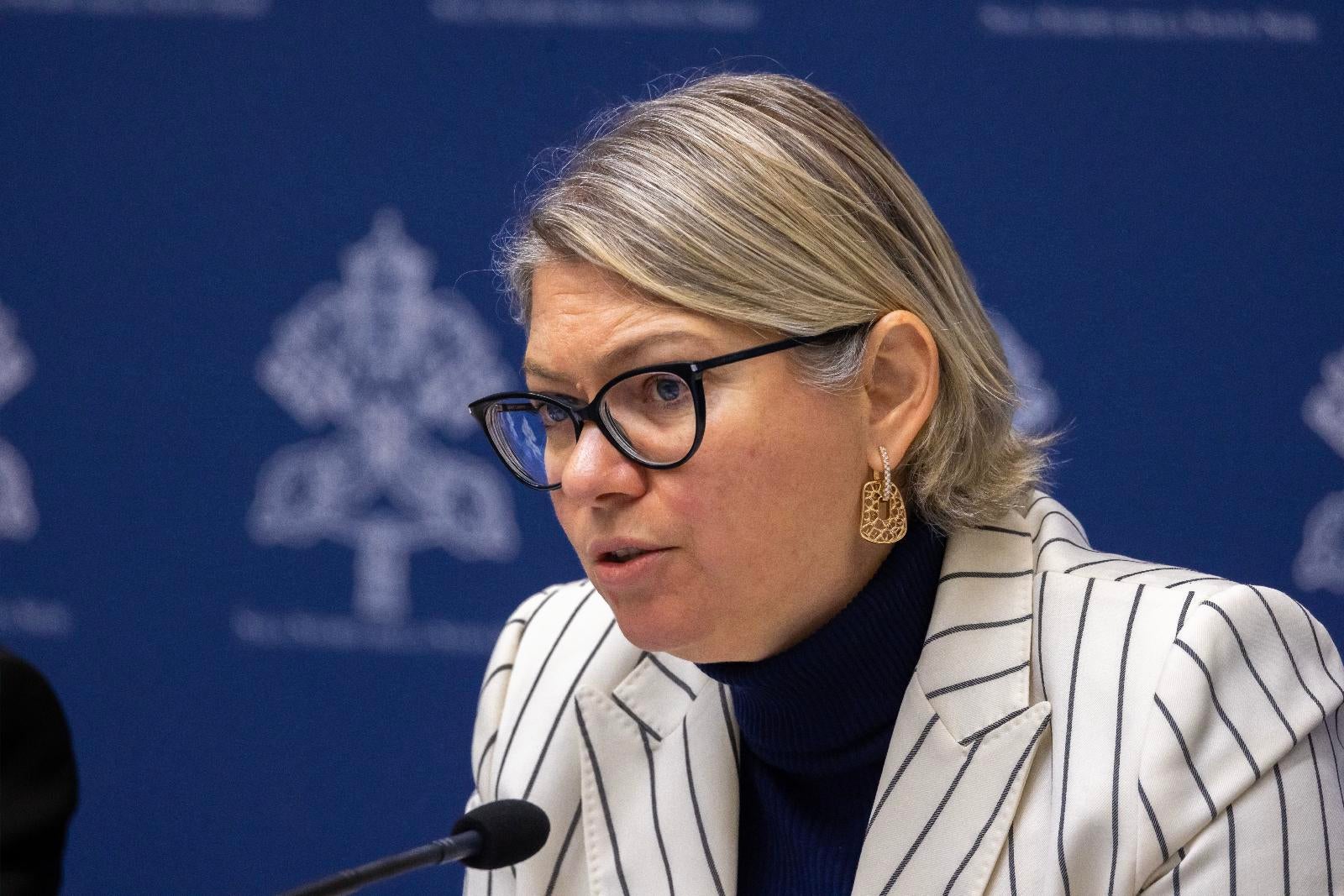
She supported the pope's call in his message for adequate education and methods of training.
"We must commit ourselves to ensuring quality technical training in artificial intelligence for all young women and men, all over the world, who wish to put their talents to use in this discipline, with dedication and enthusiasm," she said.
The more "authoritative technical voices" there are from all over the world, she said, the more they can bring "the richness of their experience, history and culture to the technical development of the artificial intelligence to come."
Pope Francis said he hoped his message "will encourage efforts to ensure that progress in developing forms of artificial intelligence will ultimately serve the cause of human fraternity and peace. It is not the responsibility of a few but of the entire human family."

